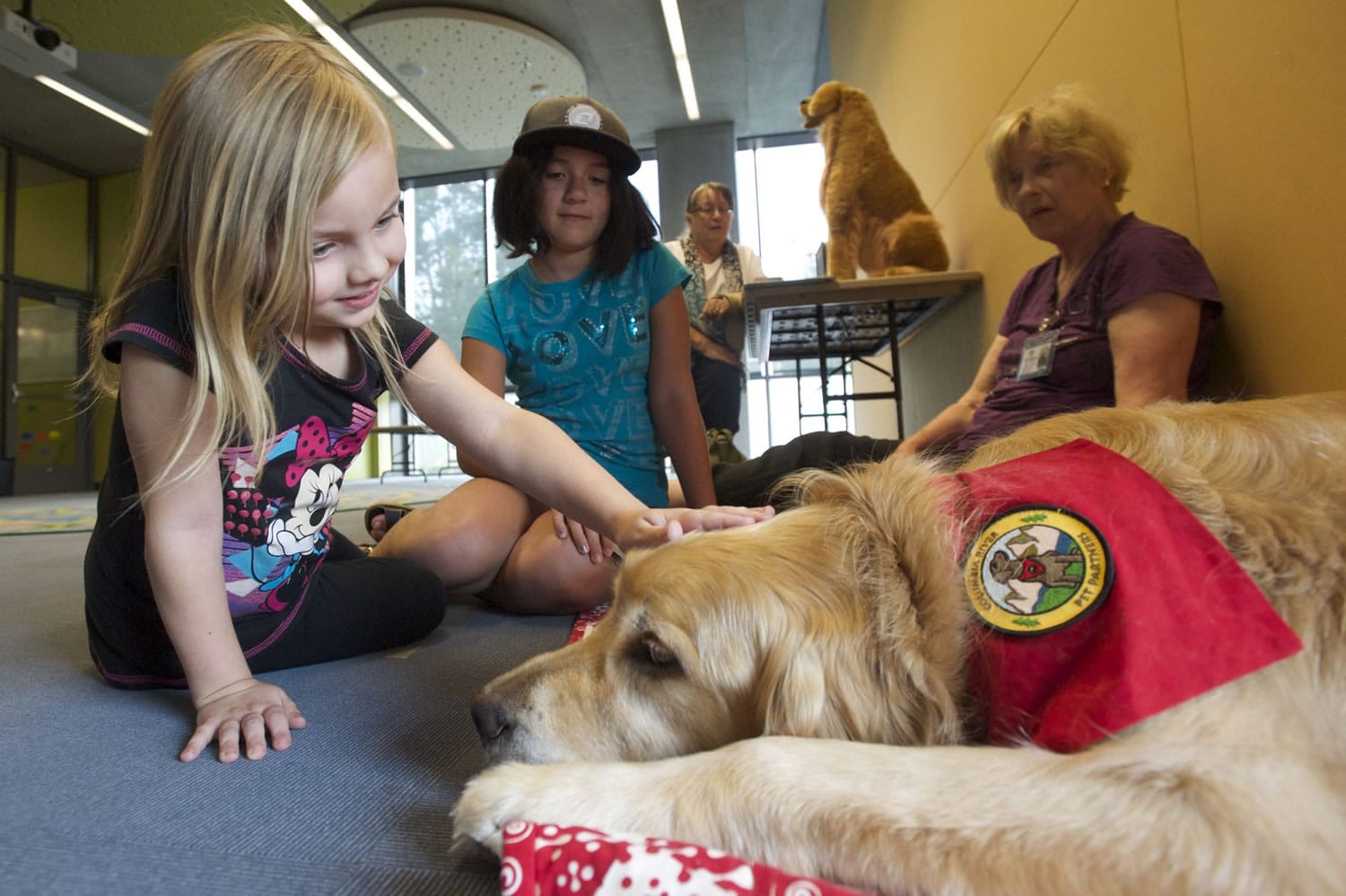When Scotty Richardson evaluates a therapy dog, he puts it through the hug test.
“I actually have to get down on the floor with the dog, and pet the dog roughly. It’s going to happen, kids are going to be obstreperous,” he said. “I have to give the dog the restraining hug. I’m putting my arm around these Akitas and Dobermans for 15 to 30 seconds. If you get a dog that just loves that hug, then they will just lay into you.”
Richardson, 73, and his wife, Michael Kay Richardson, 74, work through Columbia River Pet Partners to test potential therapy dogs and their trainers, and they have plenty of experience to draw on. The couple have been raising and training golden retrievers to be therapy dogs for the past 20 years in their Vancouver home, and their dogs have appeared in the community for just as long. In all, they’ve owned nine golden retrievers.
One of their retrievers, 9-year-old Crunch, was awarded the American Kennel Club’s Therapy Dog Distinguished title for more than 400 therapy visits. He has a complex rating, rather than a predictable rating, meaning he can work in difficult environments such as hospitals and jails.
“He actually had 700 hours; he’s way over 800 right now,” Scotty Richardson said. Crunch’s visits include jails and juvenile detention centers around the region, libraries and hospitals, such as PeaceHealth Southwest Medical Center’s cancer unit.




